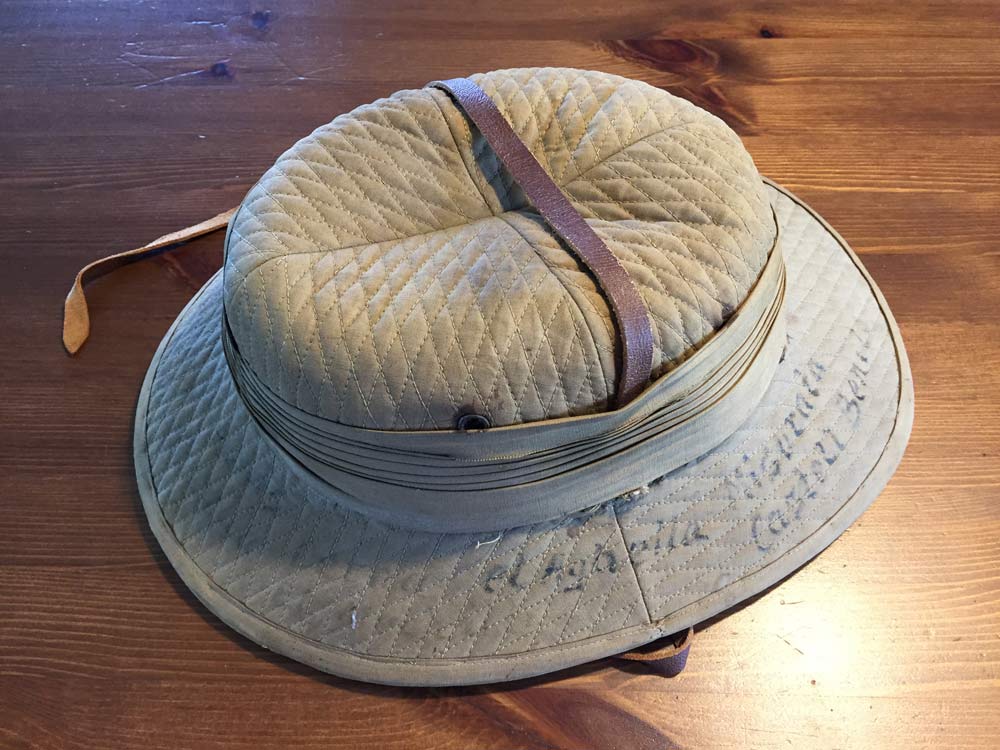
While the term “pith helmet” is used to describe almost all sun helmets, the actual use of “sola pith” material is generally only seen in the construction of helmets made in Asia, including India and the Far East. One of the more popular – and high end – examples of Indian-made sun helmets is the “Cawnpore Tent Club Helmet,” which is noted for its shape and more importantly the quilted linen covering.
All of the examples encountered to date have been made of pith, but recently one has been discovered at a flea market in Munich, Germany, and this example was made of cork.
Unfortunately the dome is completely crushed, but the stiffness of the quilted covering has allowed the helmet to retain its basic shape even if the cork within the cloth is completely crumbled. The chinstrap – if it was even original to the helmet – is loose while the puggaree is also somewhat tattered. However, the brim is largely undamaged and this allows us to see that it doesn’t have the usual thickness of a pith structure, while the cork can be seen through some of the holes in the fabric around the brim.The helmet lacks any maker or retail labels so it is difficult if not impossible to determine when or where this helmet was made.
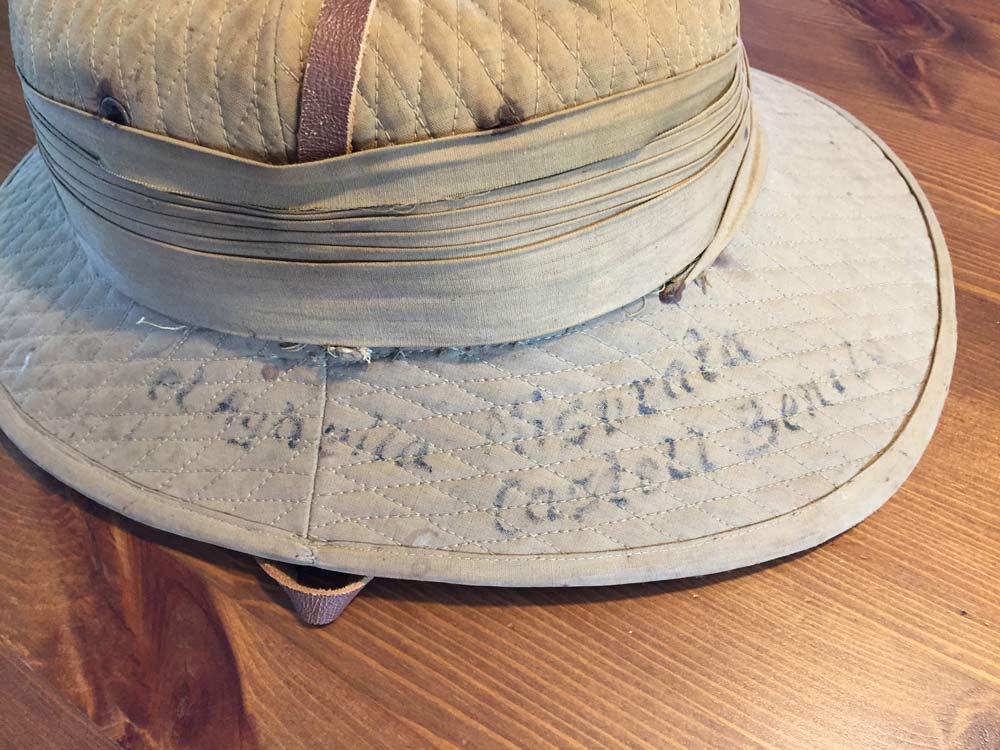
Names of various locations have been written on the helmet. The ink has faded but it appears to have been there for a while.
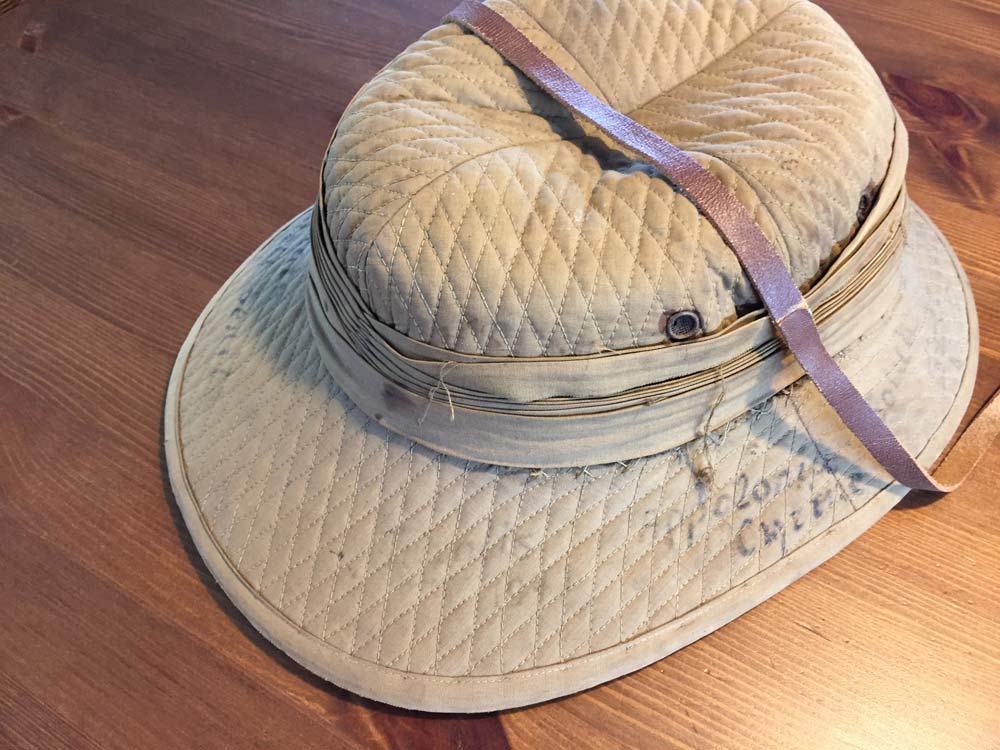
The condition of the helmet is rough, but it is easy to see that this is a cork helmet – not one made of sola pith.
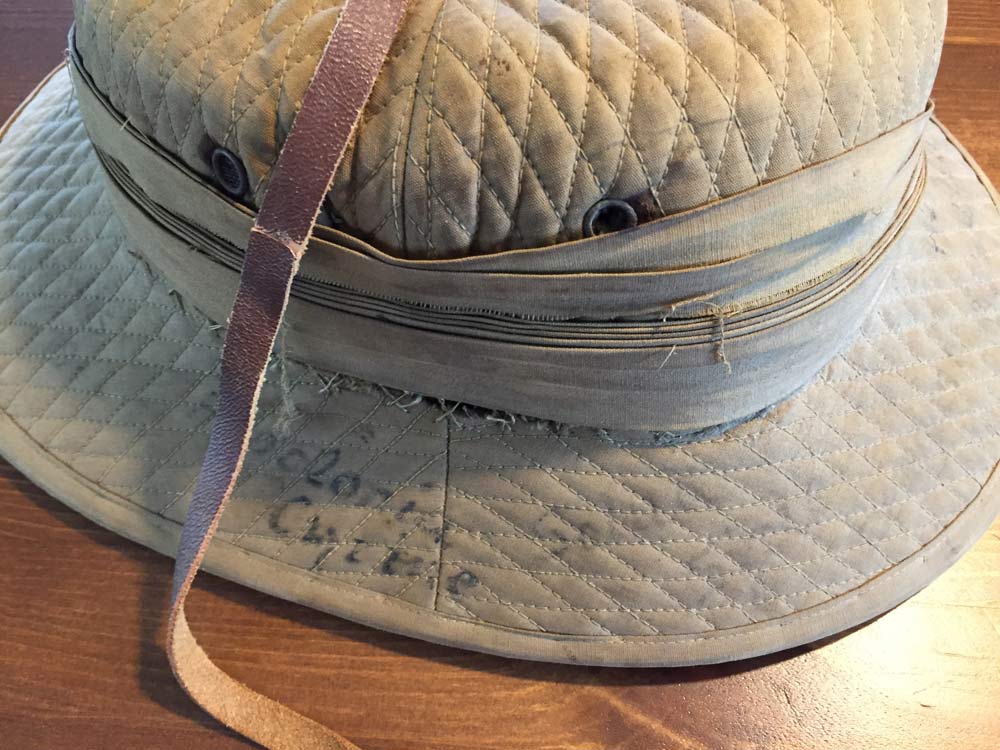
The chinstrap has come loose and it is possible that it is not original to the helmet.
Although heavily damaged, this helmet has survived for decades, obviously because even in its bad condition had some value – sentimental at least – to a past owner, apparently, as a tidy type-written label sticking inside the leather liner reveals, one “Uffz. Brandes”. In the German army, “Uffz.” always was and still is the abbreviation of “Unter-Offizier” – which is an N.C.O. There are some writings on the helmet as well.
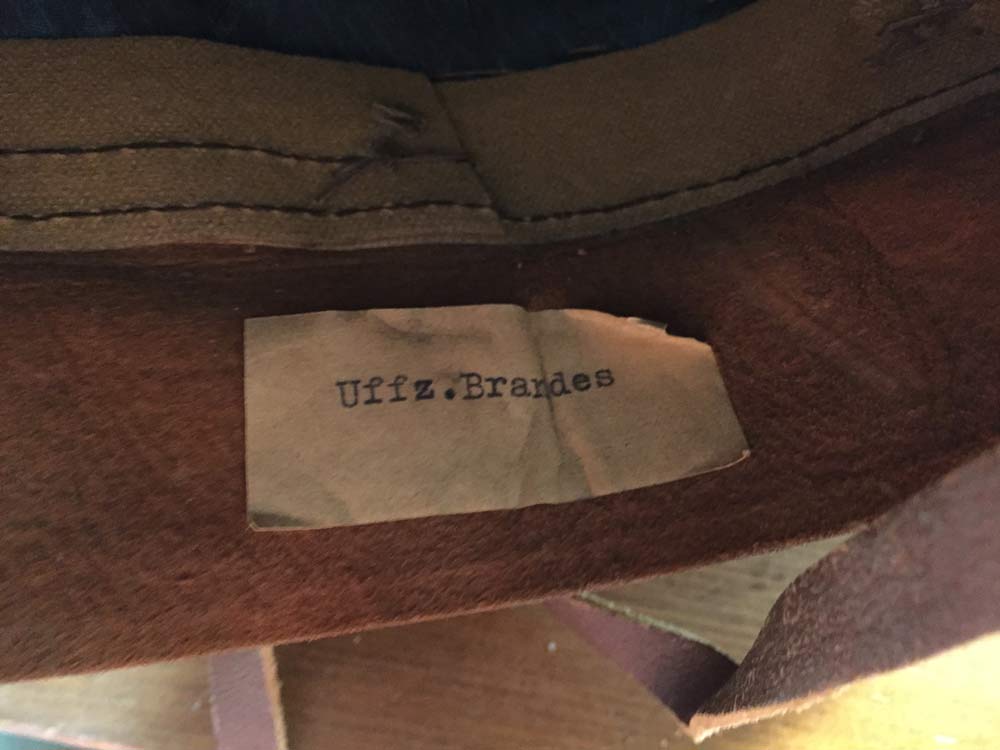
The label in the liner band denotes “Unter-Offizier” or N.C.O. – thus almost proving this was a military-used helmet.
Much of it is faded, but one could be a “Hanns,” -a German name?A comrade of Brandes? The other writing appears to be the names of places in Libya including “Tripolis 1941,””Sollum,””el Aghella,” “Miserata,” “Castell Benito.” “Apollonia,” “Cyrene.”
It seems that this helmet, though not one of the regular German types, was used by a German soldier of the Afrika Korps: Maybe at first as an issued headgear – supplied by the Italian allies, due to shortage of own helmets, as the “Uffz.” label indicates. Later it was possibly a souvenir, as the scribbling might suggest.
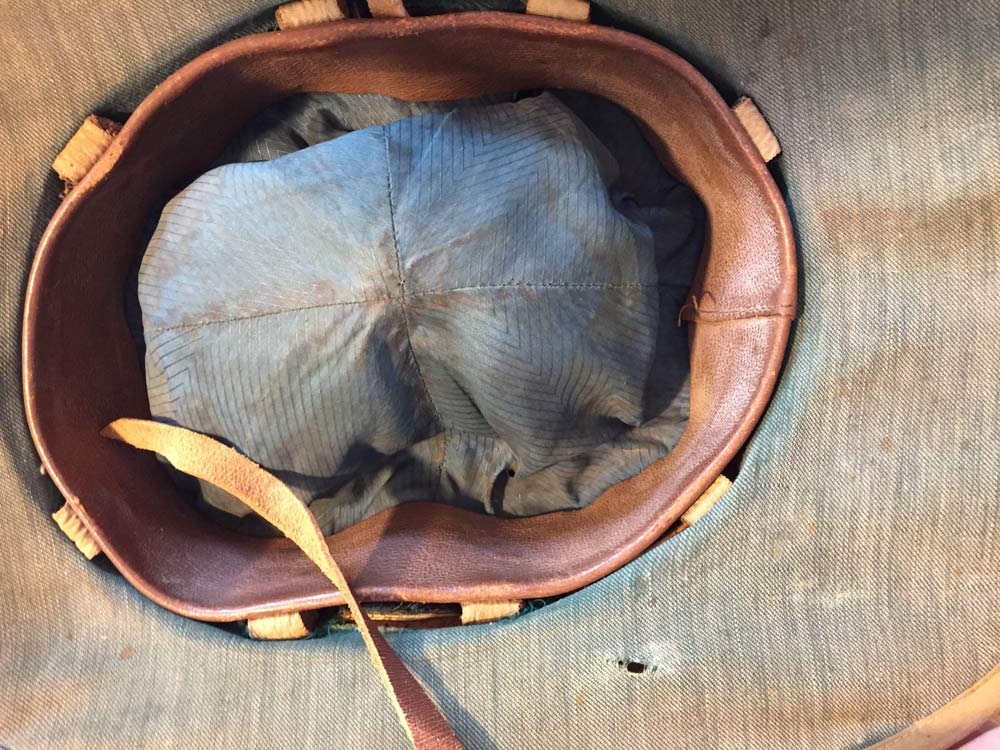
The interior shows cork spacers – something also generally seen more with cork than pith helmets.
Was this the “Aden” pattern helmet, based on the Cawnpore that was used by the Italian officers? Generally those helmets were sola pith as well (LINK), but perhaps this as an example made in Italian East Africa or even Libya with cork from Europe before the outbreak of the war. This is truly impossible to know – maybe other examples, still labeled, turn up in the future, thus adding more clues.
Roland Gruschka
May 2018

HI, I just pickup up a cork Cawnpore Tent Club Helmet here in the U.S.A. I’ve read your repair section and it was great, The helmet has everything but the silk liner. The leather headband is no longer attached in, but it is there. Have you found anywhere to source a liner or material for such.
thanks scott